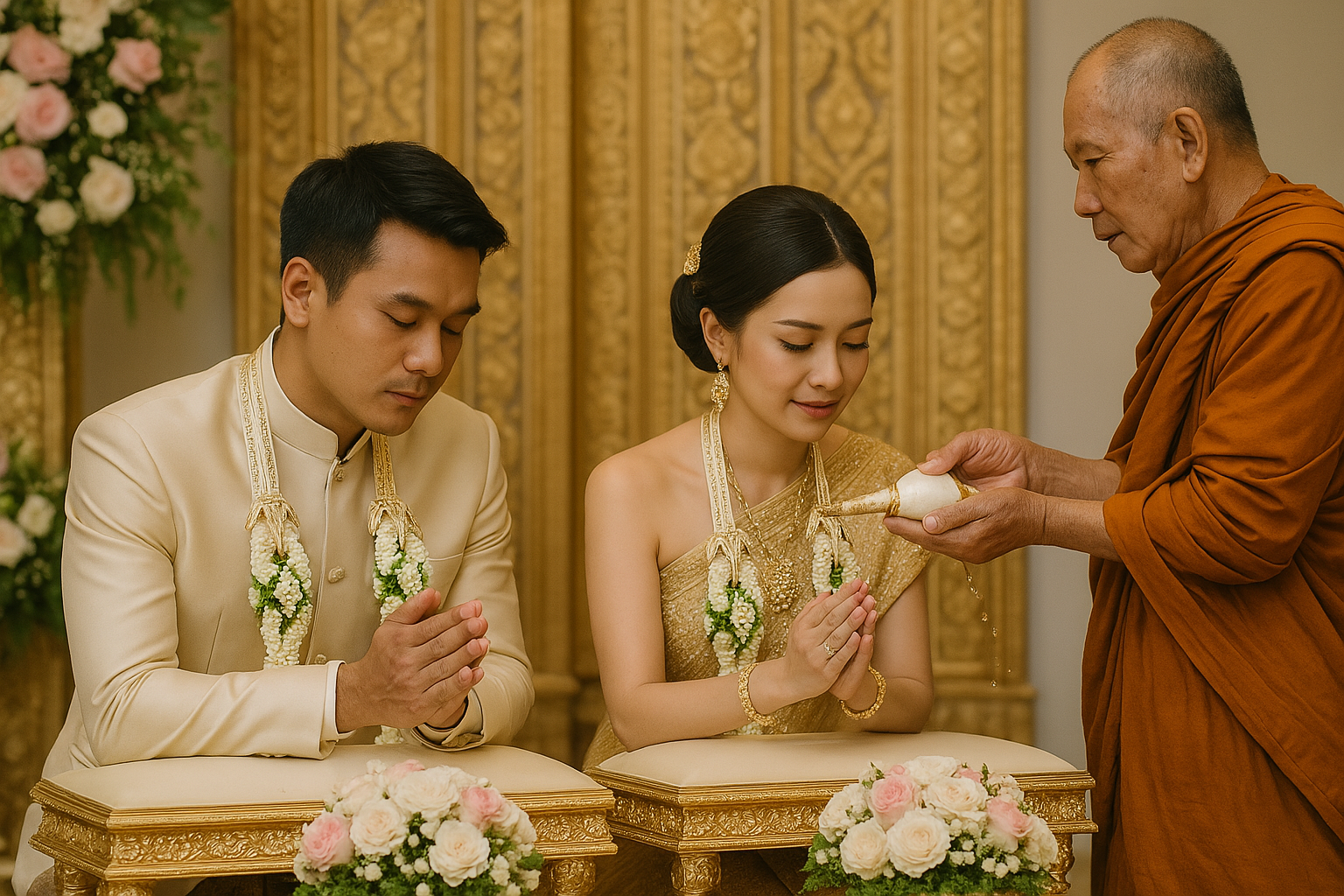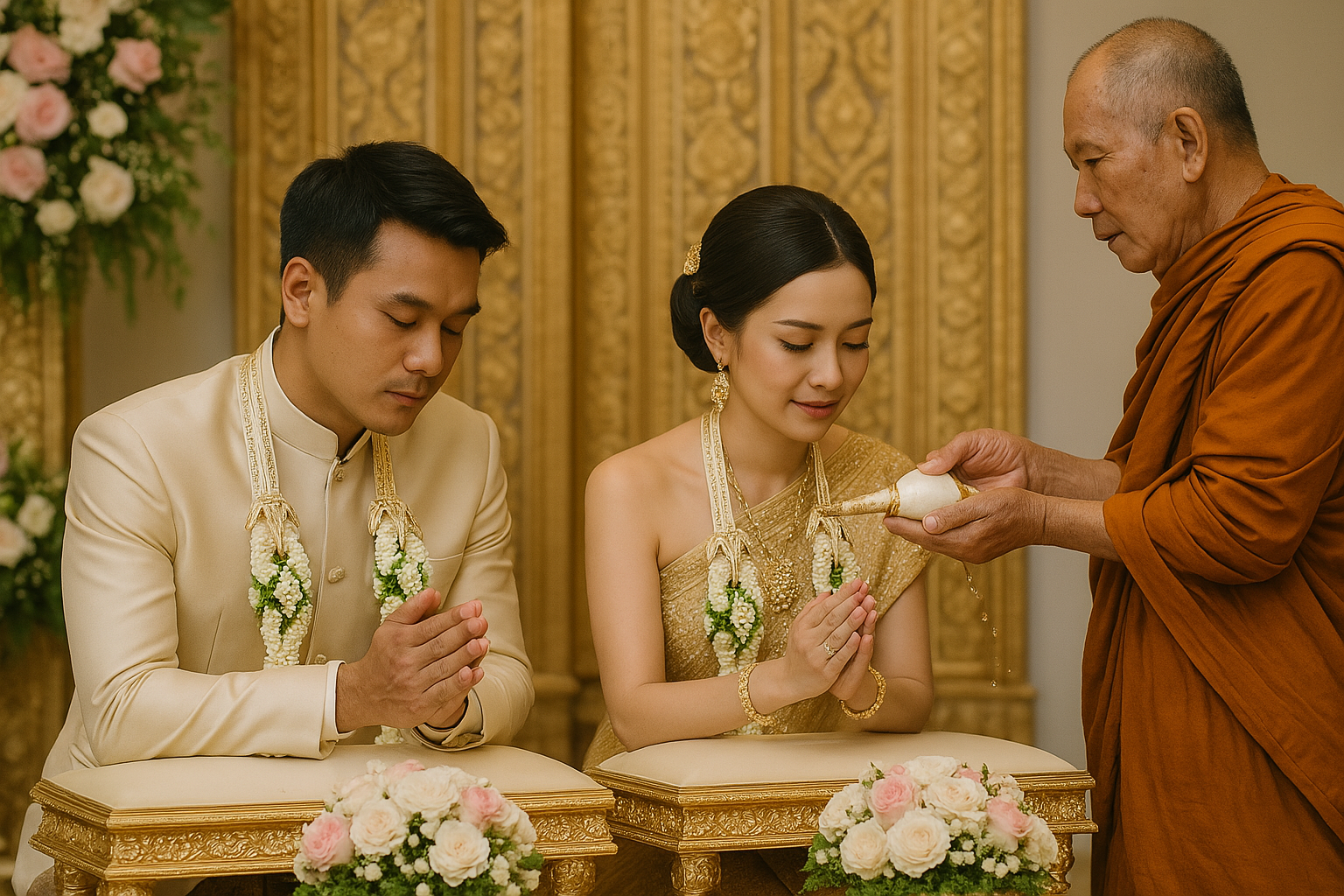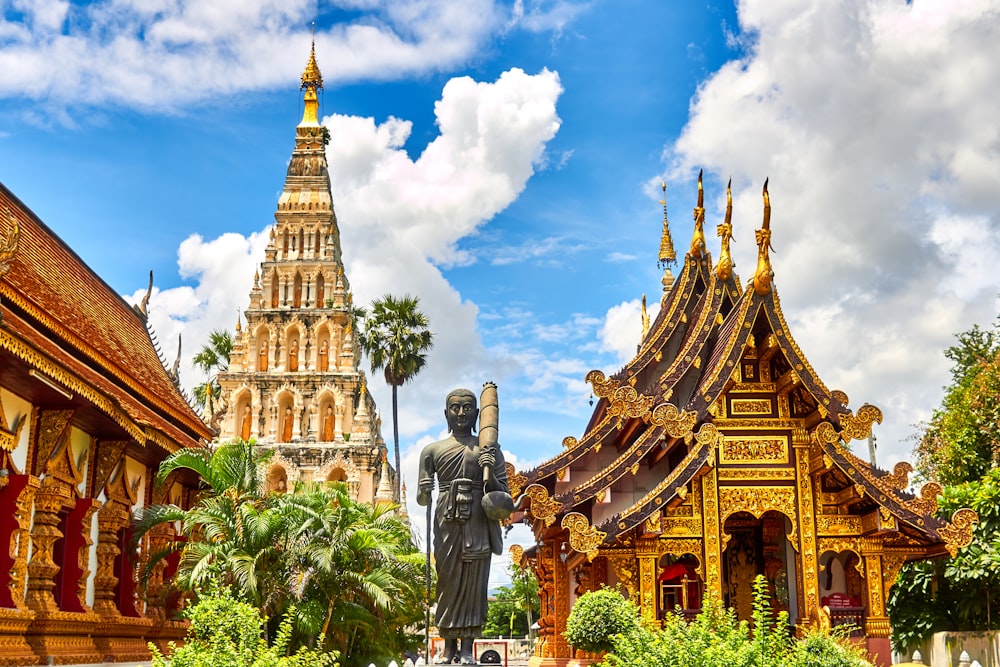
Introduction to Thai Marriage Registration
Marriage is a significant milestone in any person's life, and when it involves a cross-cultural union between a foreigner and a Thai national, understanding the legal requirements is essential. This comprehensive guide will walk you through the process of registering your marriage in Thailand, ensuring that your union is legally recognized both in Thailand and internationally.
Legal Requirements for Marriage in Thailand
Before you can register your marriage in Thailand, both parties must meet certain legal requirements:
- Age requirement: Both parties must be at least 17 years old. However, if either party is under 20, parental consent is required.
- Marital status: Both parties must be legally free to marry, meaning they are single, widowed, or divorced.
- Mental capacity: Both parties must be of sound mind and able to consent to the marriage.
- Consanguinity: There are restrictions on marriages between close relatives.
Required Documents for Foreigners
If you're a foreigner looking to marry in Thailand, you'll need to prepare the following documents:
- Valid passport: Your passport must be valid for at least six months beyond your stay in Thailand.
- Affirmation of Freedom to Marry: This document, obtained from your embassy in Thailand, confirms that you are legally free to marry.
- Translation of the Affirmation: The Affirmation must be translated into Thai by a certified translator.
- Divorce or death certificate: If applicable, provide proof of the end of any previous marriages, properly translated into Thai.
The Marriage Registration Process
The process of registering a marriage in Thailand typically follows these steps:
- Obtain an Affirmation of Freedom to Marry: Visit your embassy in Thailand to obtain this document. The process and requirements vary depending on your nationality.
- Translate the Affirmation: Have the Affirmation translated into Thai by a certified translator.
- Register the marriage at a local district office (Amphur): Both parties must appear in person at the district office with all required documents.
- Complete the marriage registration form: Fill out the marriage registration form provided by the district office.
- Provide witnesses: Two witnesses must be present during the registration process.
- Pay the fee: A small fee is required for the marriage registration.
- Receive your marriage certificate: Once the process is complete, you will receive a Thai marriage certificate.
After Marriage: Important Considerations
After registering your marriage in Thailand, consider the following steps:
- Register your marriage in your home country: While your Thai marriage certificate is generally recognized internationally, you may want to register the marriage in your home country as well.
- Update your passport: If you change your name after marriage, you should update your passport.
- Consider visa options: Marriage to a Thai national opens up different visa options, including the marriage visa (Non-immigrant O visa).
- Update legal documents: Update your will, insurance policies, and other important legal documents to reflect your new marital status.
Common Challenges and How to Address Them
The process of registering a marriage in Thailand can come with certain challenges:
Language Barriers
The registration process is conducted in Thai. If you don't speak the language, consider hiring a translator or asking your Thai partner to help navigate the process.
Document Requirements
Requirements can vary slightly depending on your nationality and the specific district office. It's advisable to check with your embassy and the district office beforehand.
Cultural Differences
Understanding Thai cultural expectations regarding marriage can help smooth the process. In Thai culture, marriage often involves not just the couple but their families as well.
Embassy-Specific Requirements
Different embassies have different procedures for issuing the Affirmation of Freedom to Marry. Here are some examples:
United States Citizens
U.S. citizens need to complete a notarized affidavit at the U.S. Embassy in Bangkok or the U.S. Consulate in Chiang Mai. This typically requires an appointment, your passport, and a fee. The affidavit will state that you are legally free to marry under U.S. law.
British Citizens
British citizens need to complete a "Certificate of No Impediment" through the British Embassy in Bangkok. You'll need to give notice of your intention to marry, which is then posted for a certain period before the certificate is issued.
Australian Citizens
Australians must complete a "No Impediment to Marriage" certificate at the Australian Embassy in Bangkok. This requires your passport, proof of termination of any previous marriages, and a fee.
Other Nationalities
Citizens of other countries should contact their respective embassies in Thailand for specific requirements.
Thai Traditional Weddings vs. Legal Marriage
It's important to understand the distinction between a traditional Thai wedding ceremony and the legal registration of marriage:
Traditional Thai Wedding
The traditional Thai wedding is a cultural celebration that may include ceremonies like the Khan Maak procession (where the groom brings gifts to the bride's family), the water blessing ceremony, and the sai monkhon (sacred thread) ritual. While culturally significant, this ceremony does not legally bind you in marriage.
Legal Marriage Registration
The legal registration at the district office (Amphur) is what makes your marriage legally binding. Many couples choose to have both a traditional ceremony and the legal registration, either on the same day or on different dates.
Ready to Start Your Journey?
If you're looking to meet a Thai partner, our dating platform can help connect you with compatible matches.
Marriage Registration Fees
The official fee for registering a marriage at a Thai district office is relatively small (typically around 200-300 baht). However, you should also budget for:
- Embassy fees for the Affirmation of Freedom to Marry (varies by country, typically $50-100)
- Translation services (approximately 500-1,000 baht per document)
- Transportation costs
- Potential expediting fees if you're in a hurry
Marriage Registration Options Outside Bangkok
While many foreigners register their marriages in Bangkok due to proximity to embassies, you can register your marriage at any district office in Thailand. Some couples choose to register in their Thai partner's hometown or in popular tourist destinations like Phuket or Chiang Mai.
Prenuptial Agreements in Thailand
If you wish to have a prenuptial agreement, it must be completed before the marriage registration. Under Thai law, a valid prenuptial agreement must be:
- In writing
- Signed by both parties
- Signed by two witnesses
- Registered at the same time as the marriage
It's advisable to consult with a Thai lawyer experienced in international marriages when drafting a prenuptial agreement.
Conclusion
Marriage registration in Thailand involves several steps and required documents, particularly for foreigners. However, by following this guide and preparing properly, the process can be navigated successfully. Remember that legal marriage registration is separate from traditional Thai wedding ceremonies, which many couples choose to have in addition to the legal process.
For foreigners marrying Thai nationals, understanding both the legal requirements and cultural aspects can help ensure a smooth start to your married life together. While the paperwork may seem complex, the result—a legally recognized marriage—is well worth the effort.

